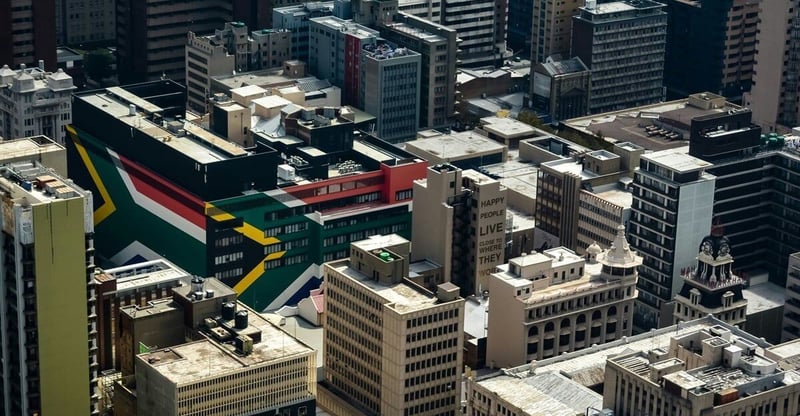Reuters Report Reveals Complex Relationship Between SA Youth And News Consumption In Digital Age
Written by: BizCommunity Editor Save to Instapaper
According to the Digital News Report 2025 by the Reuters Institute, 60% of South African respondents express a strong interest in local news, the highest among all countries surveyed. Yet paradoxically, news avoidance is also on the rise, with 40% of South Africans saying they sometimes or often actively avoid the news—matching the global average and placing the country on par with the United States and several European markets.
The reasons are familiar: the emotional toll of constant negative news, the volume of political coverage, and the perception that news has little personal relevance. Globally, 39% say the news negatively affects their mood, while nearly a third feel overwhelmed by the amount of information available.
Platforms, algorithms and trust
South Africa remains a mobile-first country, with 86% of English-speaking online users accessing news via smartphones, compared to 66% via computers and 45% with tablets.
YouTube (42%), Facebook (50%), and WhatsApp (41%) are among the most used platforms for news. Meanwhile, TikTok continues to grow, with 17% using it for news, despite 56% of South Africans identifying it as a source of disinformation.
That concern reflects a broader anxiety: 67% of South Africans worry about distinguishing real from fake news online, up three percentage points from 2024. TikTok and Facebook are perceived as the biggest disinformation threats in the country.
Although South Africa still ranks well above the global average for trust in news (55% vs. 40%), the country has seen a notable decline from its 2022 peak of 61%.
The most trusted brands include News24 (81%), eNCA (80%), and SABC News (75%). Fact-checking has become integral, with outlets like News24 establishing full-time disinformation desks and the Daily Maverick launching its FactCheck Hub with Africa Check.
A shifting business model
Behind the scenes, South Africa’s media sector is contending with deep financial strain. Legacy print is in steep decline, and digital-native publishers are not immune: the Daily Maverick made its first-ever budget cuts in 2024, slashing 15% of operating costs.
Efforts to stabilise the industry are under way. The Competition Commission has proposed a journalism sustainability fund requiring Google to contribute up to R500m annually, while also recommending algorithmic fairness and increased revenue shares from platforms like YouTube and Meta. Separately, Sanef is aiming to raise R100m to support public-interest journalism.
We submit and automate press releases distribution for a range of clients. Our platform brings in automation to 5 social media platforms with engaging hashtags. Our new platform The Pulse, allows premium PR Agencies to have access to our newsletter subscribers.
Latest from
- Get Published Founder Unpacks Brand Perception Vs Reputation To Help Businesses Sharpen Strategy
- Infrastructure Collapse Threatens Future Of Historic Makhanda Amid Ongoing Municipal Challenges
- SIU Wins Pivotal R67m Case Highlighting Systemic Procurement Failures And Legal Precedent
- PRISA’s Paul Reynell Celebrates Authenticity And Humanity In PR On World PR Day 2025
- AI Touted As Key To Solving South Africa’s Water Woes Amid Infrastructure Failures And Resource Loss
- Nashua Redefines Its Brand With OOH And Radio Campaign Spotlighting Total Workspace Solutions
- Groundbreaking Training Initiative Aims To Build Business Acumen Among Next-Gen Crop Advisors
- AfDB’s African Development Fund Targets Capital Market Access To Strengthen Financial Resilience
- Castle Lager Showcases Springbok Friendships In New Series Celebrating Brotherhood And Bond
- Wine Estates Embrace Wellness Trend As Travellers Seek Fitness, Relaxation And Fine Wine In One
- Northern Europe Emerges As A Rising Travel Favourite For South Africans This Summer
- Culture Summit Africa 2025 TO Spotlight The People Behind Africa's Culture-led Companies
- Memorial Events And Corporate Culture- Honouring Employees And Founders
- Babanango Partners With SAM Hospitality To Deliver World-Class Training Across Pan-African Luxury Lodges
- How Corporate Travel Agents Help Businesses Streamline Travel, Ensure Safety And Save On Costs
The Pulse Latest Articles
- Young Achievers Shine At The Top Of The Growthpoint Gems Class (July 30, 2025)
- Soaring Demand And Land Scarcity Make Cape Town And Durban Investor Hotspots (July 30, 2025)
- Liezel Van Der Westhuizen On Why Winter Workouts Feel Harder And How To Stay Consistent (July 28, 2025)
- From Eastern Cape To England: Zintle Mpupha’s Road To The Rugby World Cup (July 27, 2025)
- Athini Magodla Reveals Why Modern Refreshment Fuels Performance Over Perfection In Today’s Wellness Culture. (July 27, 2025)
